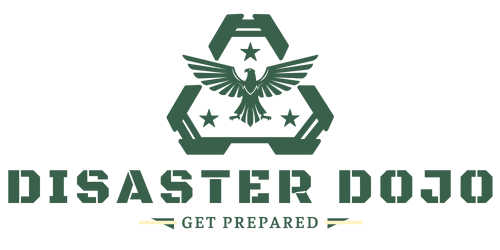Imagine you find yourself in the remote wilderness, miles away from civilization. Suddenly, a medical emergency arises. What do you do? This is where wilderness medicine becomes crucial. It goes beyond the basic first aid skills most of us are familiar with and equips you with the knowledge and tools to handle medical emergencies in challenging outdoor environments. Whether you’re an outdoor enthusiast, a hiker, or a wilderness guide, understanding wilderness medicine is essential for your safety and the well-being of others. In this article, we will explore the world of wilderness medicine, its importance, and the skills you need to navigate these uncharted territories of healthcare.
Wilderness Medicine: Beyond First Aid
When venturing into the great outdoors, it is essential to be prepared for any situation that may arise. While basic first aid skills are crucial, in a wilderness setting, they may not always be sufficient. That’s where wilderness medicine comes in. This specialized field goes beyond traditional first aid, equipping individuals with the knowledge and skills to manage medical emergencies in remote and resource-limited environments. In this article, we will explore the different aspects of wilderness medicine, from the importance of training to handling medical supplies and equipment.
Understanding Wilderness Medicine
Wilderness medicine is a branch of medicine that focuses on providing medical care in outdoor and remote locations where access to traditional medical facilities may be limited or non-existent. It encompasses a wide range of skills and knowledge, ranging from basic first aid to advanced medical procedures. Understanding the principles and protocols of wilderness medicine is essential for anyone who spends time in the wilderness, whether for recreation, research, or work purposes.
The Importance of Training
Proper training is the cornerstone of wilderness medicine. While first aid courses provide a solid foundation, specialized wilderness medicine training is necessary to handle the unique challenges presented in remote settings. Enrolling in a wilderness first aid course can provide you with the knowledge and skills to manage emergencies, make critical decisions, and provide effective medical care until help arrives, even in the absence of modern medical facilities. Training also helps individuals develop a mindset of preparedness and adaptability, allowing them to confidently handle unexpected situations.

Basic First Aid Skills
While wilderness medicine covers more than just basic first aid, having a strong foundation in these skills is still essential. Basic first aid skills include wound cleaning and dressing, CPR and AED usage, treating burns, and managing fractures and sprains. In a wilderness setting, these skills become even more crucial, as the environment can present additional challenges and dangers. By mastering basic first aid techniques, you will be better equipped to provide initial care to injured individuals and stabilize their condition before more advanced medical assistance can be obtained.
Advanced Medical Skills
Beyond the scope of basic first aid, wilderness medicine also encompasses advanced medical skills. These skills may include wound closure with sutures or staples, managing severe allergic reactions, administering medications, and performing advanced airway management techniques. In remote environments, where medical help may be hours or even days away, having the ability to perform these advanced procedures can make a crucial difference in a patient’s outcome. Acquiring these skills through specialized training is therefore highly recommended for anyone interested in pursuing wilderness activities.

Dealing with Environmental Hazards
When venturing into the wilderness, it is crucial to be aware of and prepared for the various environmental hazards that may be encountered. From extreme temperatures to high altitudes, from poisonous plants to venomous creatures, the wilderness presents a myriad of potential dangers. Wilderness medicine training equips individuals with the knowledge to identify and manage these hazards, as well as the appropriate measures to prevent and mitigate their effects. Understanding how to protect yourself from hypothermia, heatstroke, altitude sickness, and other environmental hazards is vital for your safety and the safety of those around you.
Preventing Infections and Illnesses
In a remote setting, where access to medical facilities may be limited, preventing infections and illnesses becomes paramount. Good hygiene practices, such as proper handwashing and wound care, play a vital role in reducing the risk of infection. Additionally, understanding the principles of water purification and food safety can help prevent waterborne and foodborne illnesses. Wilderness medicine training offers insights into these preventive measures and prepares individuals to handle potential infections and illnesses in a resource-limited environment.

Navigating Emergency Situations
When faced with a medical emergency in a wilderness setting, it is essential to remain calm and approach the situation systematically. Wilderness medicine training teaches individuals how to assess and triage patients, prioritize care, and effectively communicate with emergency medical services, if available. The curriculum often includes scenarios and simulations, allowing participants to practice their skills and gain confidence in managing emergency situations. By learning how to stay organized and make informed decisions under pressure, you can ensure the best possible outcome for yourself and those in need of medical assistance.
Managing Fractures and Trauma
While fractures and trauma can occur anywhere, managing these injuries in a wilderness setting presents unique challenges. Wilderness medicine training covers techniques such as splinting and immobilization, improvised traction, and managing open fractures to provide stability and minimize further damage during evacuation. Understanding the principles of wilderness transportation, including the use of improvised stretchers or carrying techniques, is also crucial in safely moving injured individuals through rugged terrains. By acquiring the necessary skills to manage fractures and trauma, you can effectively provide initial stabilization and increase the chances of a successful recovery.

Dealing with Insect and Animal Bites
Encounters with insects and animals are an inherent part of the wilderness experience. However, these encounters can sometimes lead to bites or stings, some of which may pose significant health risks. Wilderness medicine training helps individuals identify common venomous creatures and provides guidance on managing bites or stings effectively. The curriculum may cover topics such as snakebite management, recognizing and addressing anaphylaxis resulting from insect bites, and preventing tick-borne illnesses. With this knowledge, you can navigate these encounters with confidence and respond appropriately to minimize harm.
Handling Medical Supplies and Equipment
In a wilderness setting, having the appropriate medical supplies and equipment can mean the difference between effective care and potential complications. Wilderness medicine training not only teaches individuals how to use essential medical equipment but also provides guidance on assembling a well-stocked wilderness medical kit. Understanding the proper storage, transportation, and use of medical supplies ensures that they remain accessible and in optimal condition when needed. Additionally, training may include instruction on improvising with readily available resources in case of equipment shortages. By mastering these skills, you will be well-prepared to handle medical emergencies in resource-limited environments.
In conclusion, wilderness medicine goes beyond traditional first aid, providing individuals with the knowledge and skills to handle medical emergencies in remote and resource-limited environments. Understanding wilderness medicine, training in advanced medical skills, and being equipped to deal with environmental hazards are essential for anyone venturing into the great outdoors. By developing these skills and knowledge, you can confidently navigate emergency situations, manage injuries and illnesses, and ensure the safety and well-being of yourself and those around you.



